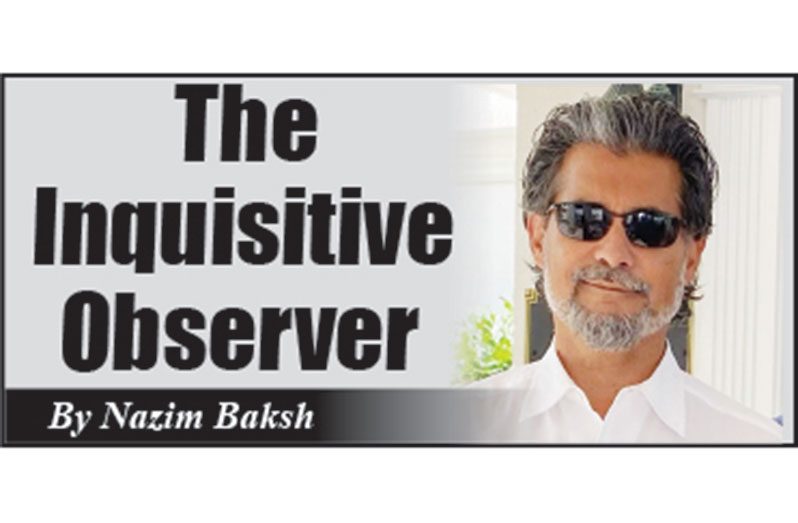TODAY marks the first day of the sacred month of Ramadan for Guyana’s Muslim community. Ramadan is a month during which those who observe the fast abstain from food, drink and acts of intimacy with one’s spouse from dawn to dusk. The fast of Ramadan is an experience that is often difficult to express in words.
When I was growing up in Guyana in the 1970s, my father would sometimes take us to the masjid for iftar, the meal that opens the fasts. The rich aroma of beef, chicken or mutton curry engulfed the masjid compound and would make the countdown to the setting of the sun seem to take forever.
Everyone would sit on long benches set against equally long tables, first to break the fast with water, soda or a cup of tea and something savory like pholourie or potato balls served with mango sour or chutney. In those days, the date fruit was a luxury few Muslims had access to or could afford.
We would then perform the evening prayer anticipating the meal to be served afterwards. And then once again, everyone would take their seats and be served the same meal even as we ate from our own plates. It was a magical time.
I still recall the lively conversations, playful laughter and the sheer joy of sharing a table of food after some thirteen hours without food and drink. Social scientists call this an act of commensality and many books have been written about the subject.
Here is the thing, I’ve lived abroad for 45 years and I’ve participated in so many iftars, but I can’t remember anything special about them except for the ones in Guyana. They are seared into my memory. Was it kinship or the bond that comes with sharing a meal with people you consider your own? Was it only the food or was it also a sense of shared history and experience?
And now that I have returned to my country, I am happy that the spirit of commensality is still alive and thriving in every coastal village and town. And I commend President Irfaan Ali for his effort to expand this remarkable tradition of commensality to a much larger segment of our society with his Ramadan Village initiative.
Set on the Muslim Youth Organization (MYO) grounds in Thomas Lands, the initiative is now in its second year and it enjoys the support of all the major Muslim organisations in Guyana. This is what you can expect if you were to visit. First you will be giving your television sets a break for the evening.
Come before the setting of the sun to visit the different booths on display. Strike up a conversation with anyone, Guyanese are inherently shy, but they don’t take long to warm up to strangers. Break the fast with dates and a warm cup of tea and observe the evening prayers. Then feel free to join a family for the iftar meal. Sit, chat and enjoy the evening for as long as you wish. At some point Muslims will start praying again and even though the recitation of the Quran is mesmerising, you are free to leave whenever you like.
Commensality – the art of eating together – is a noble tradition (a sunna) of Prophet Muhammad, peace and blessings of God be upon him. Before eating, the Prophet taught his companions to say “In God’s name and with His blessings, bless us with what You have given us as sustenance and save us from the torment of the fire.” And after eating, Muslims also recite the following prayer: “Praise be to God who has fed us and given us to drink and made us believers.”
The Quran teaches that food is a gift of God and should not be wasted. The Prophet himself never criticised food and if he didn’t like something that was permissible to eat, he would leave it alone for his companions.
The noble Prophet would personally instruct his companions on where to sit and he would serve them food and drink with his own hands, instructing them to eat with their right hands only. Everyone was his guest in the city of Madinah. And to this day, anyone who visits is regarded as a guest of the final of the Abrahamic Prophets.
He encouraged his companions to eat and drink while sitting and engage in lively conversations over a meal, except when their mouths were full. There is no evidence that the Prophet ever ate alone. Numerous traditions serve as a testimony to the fact that his table was always shared by those who were the poorest, the most needy, the indigent and the homeless among the residents of Madinah. By some sort of miracle, food seemed to expand with every act of Prophetic commensality.
DISCLAIMER: The views and opinions expressed in this column are solely those of the author and do not necessarily reflect the official policy or position of the Guyana National Newspapers Limited.



.jpg)








